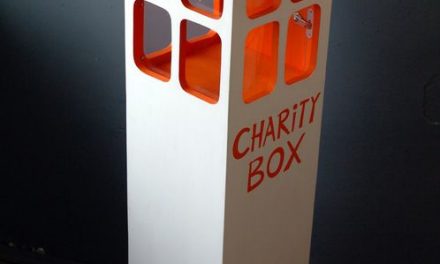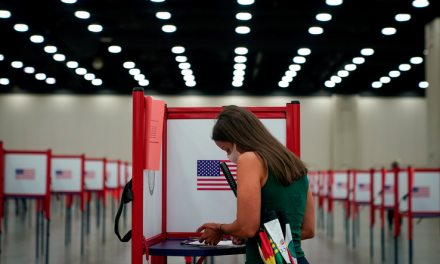Last night, as millions were watching the Superbowl, U2 launched their new single “Invisible.” Everything about this song is what fans like myself have come to expect from U2 – both the song and its release pushing us to see those whom we otherwise might not notice (and raising some money for the Global Fund to Fight AIDS in the process – as Bank of America has pledged $1/ per itunes download).
In Evangelium Gaudium 53, Pope Francis explains that we must be concerned not just with exploitation but with exclusion. The excluded are “thrown away;” it is as if they do not exist as human persons, they simply do not count. They are invisible – and yet, their voices call out to the Lord – and we, like Cain, respond “Am I my Brother’s keeper? Am I my Sister’s keeper?” There is much we can learn from prayerfully reflecting on Pope Francis’s repeated use of the Cain and Able story…but, for now I’d us to prayerfully reflect on what U2’s new song “Invisible” can teach us about human dignity and the one human family. The song includes two refrains and both of them poetically push us to a deeper understanding justice, inequality, participation, and solidarity.
The first:
I’m more than you know/ I’m more than you see here
I’m more than you let me be
I’m more than you know / A body & A Soul
You don’t see me but you will/
I am not invisible / I am Here.
Poverty for many means death. Bono and the other members of U2 have long been advocates against extreme poverty and in fighting the global aids pandemic. The dignity and gift of each human person is “more than you know” and if she is invisible – why? This song challenges us to look into our own hearts – why do we not see our neighbors? Why do we not see the persons suffering? Beyond that, the indictment “I am more than you let me be” is not an individual one, it is a collective judgment upon the global power structure which values some and throws away others. Am I prepared to make visible the ways in which I perpetuate and benefit from this allocation of resources and power?

In a 2012 speech to students at Georgetown, Bono challenged the almost a thousand students present to see the invisible.
“Because when you truly accept that those children in some far off place in the global village have the same value as you in God’s eyes or even in just your eyes, then your life is forever changed, you see something that you can’t un-see.”
Once I recognize that you have human dignity, that you are a child of God, that you are the image of Christ – I cannot un-see that. Recognizing the human dignity of someone who has been thrown away or is invisible means accepting that they are valued, that they are human and that their value is in no way tethered to their usefulness. When Pope Francis points to the move from exploitation to complete marginalization – which relegates millions to invisible he recognizes that extreme global and national inequality erects barriers to seeing persons in poverty. Instead we set up barriers between “us” and “them.” However, as U2 reminds us:
There is no them / only us/ only us
there is no them / only us / only us
There is no them / only you, only me
There is no them.
This is what it means to be human. We are One Human Family. One human family, united against hunger is this year’s Caritas Internationalis theme — there is only us.

When Evangelium Gaudium was released, I wrote a reflection entitled “The Dignity of the Vulnerable” for America Magazine nothing that
The ultimate violation of human dignity is to no longer be counted as a human person. The response must be inclusion and participation. In a speech to the UN working group on sustainable development, Archbishop Chullikatt urged “Inclusion, on the other hand, means inviting the poor to participate in the world’s economic, social, political and cultural systems as full partners, building up their capabilities so that they can take their deserved seat at the table for all, as equals, so that economic exchanges will be mutually beneficial and that politics will involve real partnerships.” Thus Pope Francis calls for a radical reevaluation of economic structures and a return to person-centered ethics as animating these structures.
We need a radical revolution of values, as Dr. King once argued. We need a conversion to the human dignity of all and the realization that I’m more than you know, a body & a soul. Globally, U2 is drawing our attention to the millions suffering from the AIDS pandemic. Nationally, after seeing the hateful responses to Coca-Cola’s “America is Beautiful” commercial and Cheerios’ “Gracie” commercial featuring a biracial family, there is no them, only us seems like a refrain that needs to be sung LOUDLY. For Catholic social teaching, poverty is exclusion and justice demands participation and inclusion. It is the recognition that “where you live should not decide whether you live or whether you die.” Concretely, as David Hollenbach has noted, this means the needs of the poor take priority over the wants of the rich and the participation of the marginalized takes precedence over the power structures which exclude them. If we are, as Catholic theology holds, one human family – then “we get to carry each other.” After all, “we need love and peace” built upon ordinary love.
This week thousands are meeting in Washington, DC at the Catholic Social Ministries Gathering to commit themselves once again to building a church of and for the poor. This week discussions are going on at the United Nations on developing sustainable development goals for the post-2015 agenda.
 Discussions near and far need to focus on poverty and development in which no one is invisible.
Discussions near and far need to focus on poverty and development in which no one is invisible.
there’s no them, only us, only us.
there’s no them, only you, only me.
There’s no them.





What a great juxtaposition of this entry with the last one, by Emily Reimer-Barry! They form a diptych, one might say, of Super Bowl-related popular songs, in which U2’s “Invisible” stands as the ultimate response to Bruno Mars’s “Runaway Baby.”